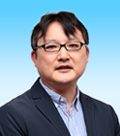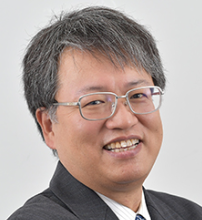トップページ
 イベント・広報
イベント・広報
 R-CCS Cafe
R-CCS Cafe
 R-CCS Cafe第255回(2023年11月6日)
R-CCS Cafe第255回(2023年11月6日)
R-CCS Cafe第255回(2023年11月6日)
English| 開催日 | 2023年11月6日(月) |
|---|---|
| 開催時間 | 16:00 - 17:20(16:00 - 17:00 3名の講演者による講演、17:00 - 講演者を交えた自由討論) |
| 開催都市 | 兵庫県神戸市/オンライン |
| 場所 | 計算科学研究センター(R-CCS)6階講堂/Zoomによる遠隔セミナー |
| 使用言語 | 発表・スライド共に英語 |
| 登壇者 |
青木 保道 連続系場の理論研究チーム  杉田 有治 粒子系生物物理研究チーム  中島 研吾 副センター長  |
講演題目・要旨
1st Speaker: Yasumichi Aoki
Title:
Field theory simulations to fundamental properties of matters
Abstract:
Mass of the visible matters in our universe is mostly composed of that of baryons, among which nucleons (protons and neutrons) are most abundant because they are the most stable baryons. A neutron decays into a proton with an electron and a neutrino through a beta decay. Proton is the stable lightest baryon, which will not decay at all, if the standard model of particle physics is the ultimate theory of matters. Therefore if the proton decay is observed, it is a smoking gun signal of the physics beyond the standard model.
Nucleon prpoerties are now being studied with realistic simulation parameters that matches to those in our physical real world thanks to the advancement of the computer, algorithms and software.
In this talk we will touch some of the recent advancements on the understanding of the properties of nucleons and a numerical technique which realized the improved precision of the quantities of interest.
2nd Speaker: Yuji Sugita
Title:
Coarse-grained modeling and simulation of protein and lipid dynamics
Abstract:
Computational modeling and simulations are powerful approaches to examine the structure-dynamics-function relationships of biomolecules. Due to the computational limitations, molecular dynamics simulations with atomistic models cannot describe slow biological processes. Here, we apply residue-level coarse-grained models for proteins and lipid molecules to study conformational dynamics of biomolecules in the cell. Structure-based approaches, such as the Go-model, are mainly employed for simulating protein dynamics, while physics-based approaches are partially used. We have also developed a heterogeneous domain-decomposition scheme for coarse-grained molecular dynamics simulations and carried out large-scale biological simulations on Fugaku. We have also developed new coarse-grained models of lipid molecules treating their electrostatic interactions explicitly. We plan to integrate the coarse-grained lipid models with the residue-level coarse-grained models for proteins and simulate large biological membranes or other slow biological processes near the membrane interfaces.
3rd Speaker: Kengo Nakajima
Title:
Integration of Simulation/Data/Learning and Beyond
Abstract:
Recently, supercomputing has been changing dramatically. Integration/convergence of Simulation/Data/Learning (S+D+L) is important towards Society 5.0 proposed by Japanese Government, which enables integration of cyber space & physical space. We propose an innovative method for computational science for sustainable promotion of scientific discovery by supercomputers in the Exascale Era by combining (Simulation + Data + Learning (S+D+L)) in the project, and have developed a software platform "h3-Open-BDEC" for integration of (S+D+L) and evaluate the effects of integration of (S+D+L) on the Wisteria/BDEC-01 system at the University of Tokyo.
In this talk, the speaker will give an overview of the activities of the h3-Open-BDEC project. Since this project will end this FY, the speaker would like to specifically talk about future developments.
注意事項
- 参加の際はPCマイクの音声・ビデオをオフにされるようお願いいたします。
- 当日の会場環境や通信状態により、やむなく配信を中止・中断する場合がございます。
- プログラムの内容、時間は予告なく変更される場合があります。
- ご使用の機器やネットワークの環境によっては、ご視聴いただけない場合がございます。
- インターネット中継に関する著作権は、主催者及び発表者に帰属します。なお、配信された映像及び音声、若しくはその内容を、理化学研究所の許可無くほかのウェブサイトや著作物等への転載、複製、改変等を行うことを禁じます。
(2023年10月31日)
